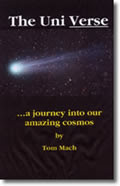
Procrastination and the Writer
by Tom Mach
© 2009 by Tom Mach
Robert Benchley said it best when he said, “Anyone can do any amount of work, provided it isn't the work he is supposed to be doing at that moment. “ While this can be said of any endeavor, I find that it is particularly true of writers. I am one of the greatest time-wasters in the world. Yesterday I must have checked my Twitter at least thirty times, my Facebook twenty times, sent out meaningless tweets about fifteen times, check my email every 15 minutes, bought myself a cell phone and tried playing Sudoku on it, then took a drive to get my car washed and put gas in it.
by Tom Mach
© 2009 by Tom Mach
Robert Benchley said it best when he said, “Anyone can do any amount of work, provided it isn't the work he is supposed to be doing at that moment. “ While this can be said of any endeavor, I find that it is particularly true of writers. I am one of the greatest time-wasters in the world. Yesterday I must have checked my Twitter at least thirty times, my Facebook twenty times, sent out meaningless tweets about fifteen times, check my email every 15 minutes, bought myself a cell phone and tried playing Sudoku on it, then took a drive to get my car washed and put gas in it.
Box Score: “Other stuff” –110 “Writing”—0
I envy writers who claim they can sit down and type out five pages a day, every day, no matter what. They claim that even if what they type is nonsense, even if it is poorly written, even if it is filled with all sorts of errors, it’s writing. To me, it’s like saying even if you’re pumping air into a tire and no air is going into it, you’re pumping. Or, it’s like composing a symphony using a harmonica. At least you’re attempting to compose.
I use the excuse of having to be “inspired” before I can write. The problem is that I don’t get inspired until I start writing and once I get into the rhythm of my story, then I get inspired.
I think next time I give a workshop on writing a novel, I will write three words on the chalkboard and dismiss the class. The words? JUST DO IT.
I envy writers who claim they can sit down and type out five pages a day, every day, no matter what. They claim that even if what they type is nonsense, even if it is poorly written, even if it is filled with all sorts of errors, it’s writing. To me, it’s like saying even if you’re pumping air into a tire and no air is going into it, you’re pumping. Or, it’s like composing a symphony using a harmonica. At least you’re attempting to compose.
I use the excuse of having to be “inspired” before I can write. The problem is that I don’t get inspired until I start writing and once I get into the rhythm of my story, then I get inspired.
I think next time I give a workshop on writing a novel, I will write three words on the chalkboard and dismiss the class. The words? JUST DO IT.












